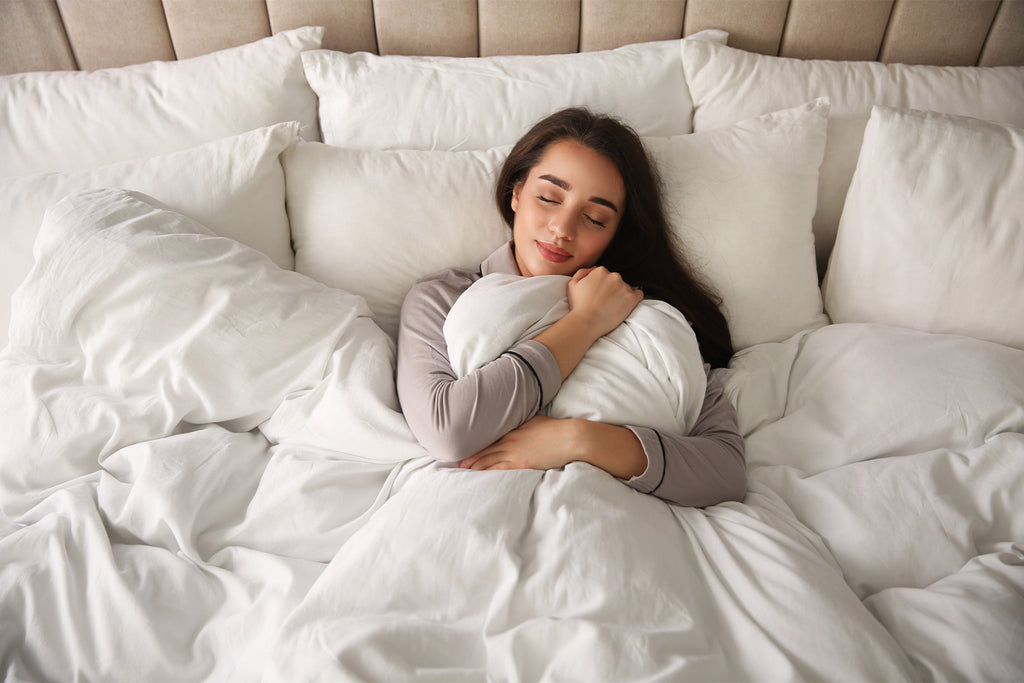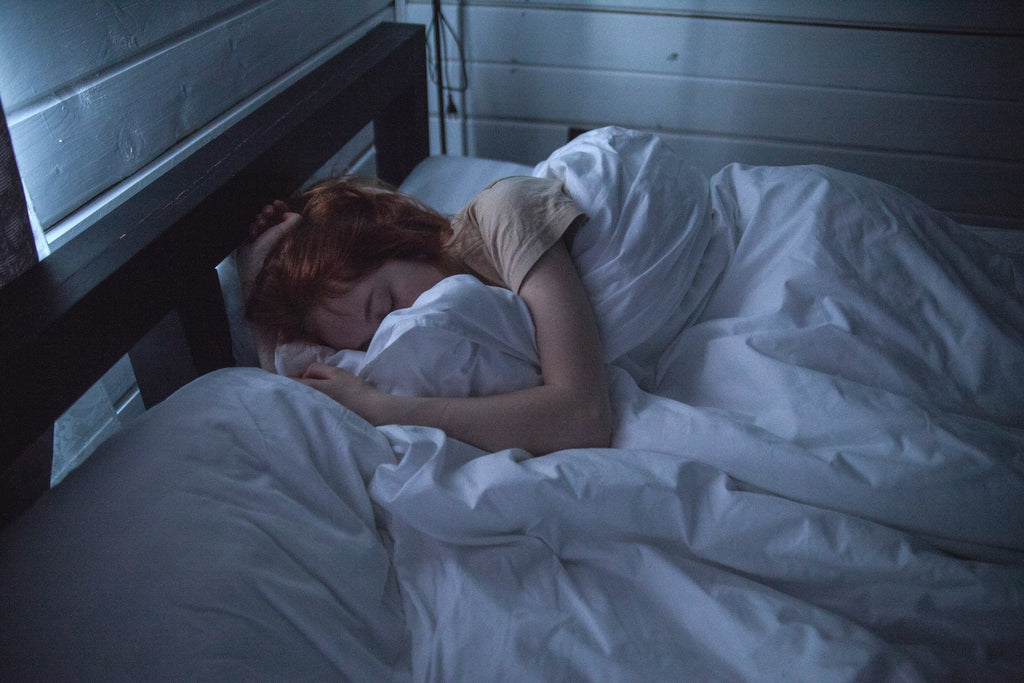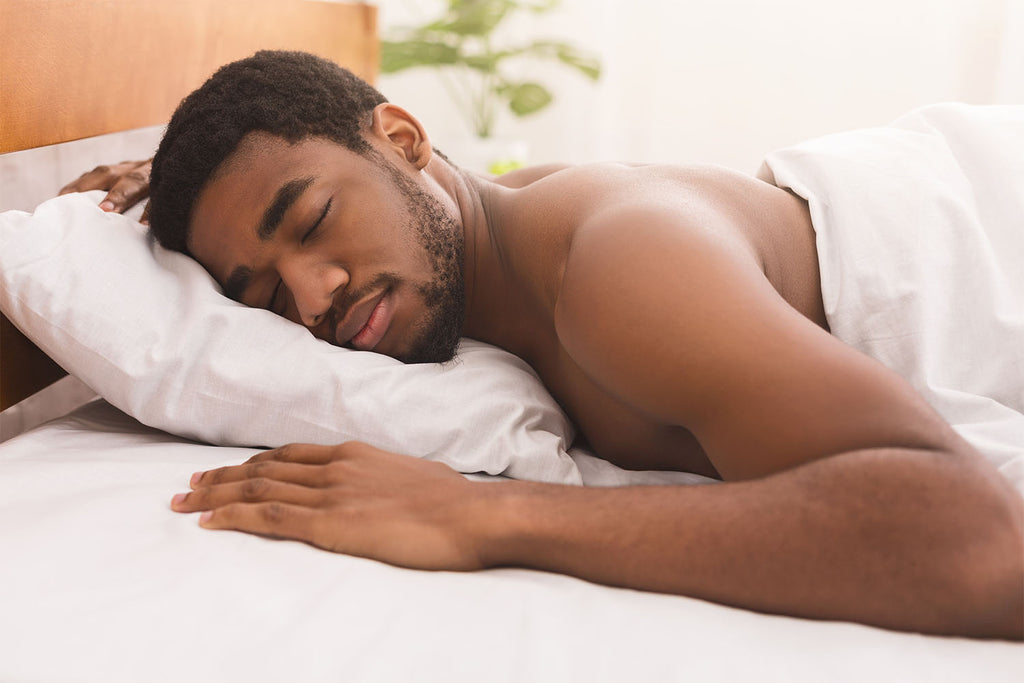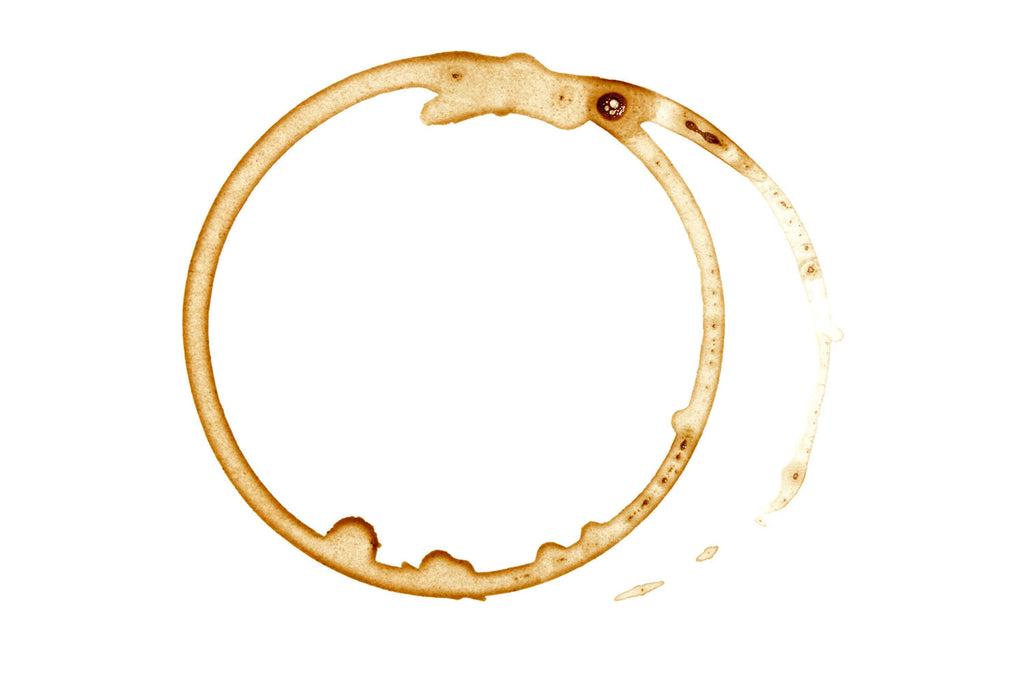
Our Tips on How To Sleep Cool at Night

It’s happened to all of us at one point or another. You’re trying to fall asleep, to finally get that rest you have been looking forward to all day. Then, for whatever reason, your body heat seems to spike. Suddenly, you find yourself tossing and turning, trying to cool off so you can get some shut-eye.
This is a struggle that we’re all familiar with; you’re not alone! There are several different causes as to why this may be happening. Luckily, there are just as many tips for alleviating the problem of body heat rising at night and what to do to stay nice and cool while you sleep.
Read on to learn more about the causes of rising body temperatures when going to bed and what you can do to stop this process in its tracks.
Why Do I Get Hot at Night?
Let’s break down some of the reasons that you may be experiencing issues with heat when going to bed.
Sickness
This is more likely to be the case if you have been getting warmer when going to bed, particularly over the past couple of days. If heat at night is a sudden-onset and new issue for you, it could simply be a sign of a common cold creeping in.
You may even feel the effects of a cold, such as a fever, more intensely during the night time because your white blood cells are not as active in fighting off illness during the day. This means that at nighttime, any symptoms you have been experiencing at night may increase, such as heat from a fever.
Humidity and Temperature
Another cause that can be easy to forget about is the temperature outdoors, seasonal heat differences, and the overall humidity inside and outside your house. While this may seem like an obvious cause, it can be tricky to remember and pinpoint when all you are focused on is getting to sleep and cooling down.
If it’s the summer or you live in a more humid area, this could be another reason why getting cool at night can be so challenging.
What You Do Before You Sleep
Your pre-sleep habits also impact your sleep and are another factor that is easy to overlook.
For instance, if you are someone who tends to go to the gym late at night or works out from home relatively close to bedtime, this could be a habit that is raising your body temperature when trying to get some shut-eye.
While exercise typically helps people fall asleep easier, this applies more to those who exercise earlier during the day. So, try and avoid any rigorous activities during the later hours.
Furthermore, all know that caffeine before bed is never a good thing; it increases your alertness and heart rate, which in and of itself makes it harder to fall asleep. In terms of caffeine’s effects on body temperature, it can actually cause a spike in the core body temperature. Caffeine may even cause body heat increase you notice at night.
Stress levels are also known to increase the internal temperature of your body. Sometimes, stress is unavoidable throughout the day, so make sure you do everything you can to manage it. Whether it be reading, journaling, or watching your favorite show before bed, find habits that help you decrease the stress you’ve gathered throughout the day.
Who You Are Sharing a Bed With
If you sleep with a partner in bed — or maybe with a furry friend — they could also be another cause of a rise in body temperature. Sharing a bed with anyone will increase the temperature of your bedding and could even increase the temperature in the room.
Of course, this is not us recommending that you kick your partner out of bed to stay cool! You'll just have to work together to find a solution that works for both of you.
Medications
A number of medications can cause an unexpected body heat spike at night. Some prescription meds also come with another unpleasant side effect — night sweats.
If you are wondering what any of these medications may be, search for any potential side effects of the current medication you are taking, and you just might find the culprit of the heat increase at night.
Hormonal Imbalance
Our hormones can play a major role in regulating body temperature, including sudden temperature increases and decreases. For instance, night sweats may be a problem women face due to natural fluctuations in estrogen levels.
Pregnancy can also impact hormonal levels, which could cause a heat rise. If you feel that your hormones are out of balance for whatever reason, this could be the cause of your restless warm nights.
The Type of Bedding You Use
Even certain bedding has the ability to trap heat and keep you warm at night.
Insulating bedding is ideal for those who live in colder areas and need to stay warm throughout the night. However, if you are sleeping on jersey sheets or something else that is known to trap heat, this could easily be the cause of high body temperature at night.
Getting Cool: How To Turn Off the Heat at Night
Now that you know what may be causing the rise in heat you seem to be experiencing at night, let’s get through some of our tips to confront this issue head-on and get you sleeping cool and comfortable throughout the night.
Invest in a Cooling Unit or Air Conditioner
This is probably one of the simplest ways to kick out any issues you may be experiencing with excessive heat at night. It also can be one of the most effective.
Most modern air conditioners have fine-tuned temperature settings, along with time preferences, so you can keep your room as cool as you like for as long as you like at any time throughout the day.
However, purchasing a cooling unit may be less cost-effective in certain situations than purchasing a new set of bedding. Sometimes, replacing your sheets is the quicker and simpler (and more budget-friendly) option.
Create a Cross Breeze
If you don't want to splurge on a new air conditioning unit or something of that sort, you're in luck. You can naturally create a breeze in your room by simply opening two windows that are across from one another, generating what is known as a cross breeze.
This effect is achieved by creating a tunnel or flow of motion through the open windows, one being the entry point for the breeze and the other being the exit point.
This is a quick and easy way to help alleviate some of that bedtime heat. It's especially handy if you find yourself hot randomly in the middle of the night and don’t have access to a fan or cooling unit.
Enjoy Something Cold Before Bed
Normally, a lovely hot tea before bed might be something that would soothe you into a pleasant and restful slumber. However, if you are struggling with nighttime heat, a hot beverage is the last thing you want to drink before bed.
Instead, sipping something as simple as an ice-cold glass of water on your nightstand or any low-sugar, low-caffeine cold beverage will help during those moments when the heat feels like it's unbearable.
If the heat you are experiencing stems from being sick, this tip could be even more of a help than it usually would be. You can even take that cold glass of water and hold it up against your forehead to get some temporary relief from the fever.
Take a Cold Shower Before Bed
This is another suggestion that may seem a bit unconventional, but one that could totally work to lower your body temperature.
A cold shower is more of a temporary solution, but if you are struggling to get to sleep in the first place — let alone stay asleep — due to any sort of issue with body temperature, then taking a short cold shower may help you rest.
You don’t even have to take a full cold shower if the idea of more than a few minutes of ice-cold water sounds horrific. If a nice warm shower is a part of your routine to wind down and relax, we don’t want you to give that up. Hang on to that soothing shower, especially since high-stress levels can increase body temperature.
Instead, try cooling down your shower during the last few minutes before toweling off. If you plan on making use of this tip, make sure you take the cold shower relatively close to when you plan on heading to sleep. Eventually, your body temperature will rise back up again, so it's best to plan your shower timing strategically.
Use a Dehumidifier
This is another investment worth making if you live in a humid climate. Dehumidifiers might not come to mind when you're searching for relief from nighttime heat. However, while easily overlooked, the humble dehumidifier can make a world of difference when you're tossing and turning due to heat.
While AC units are terrific for reducing heat, they're not your only line of defense. If humidity is your main issue, a dehumidifier will do much more for you than AC would.
Avoid Tight Clothing
The last thing you want to do when trying to stay cool at night is anything that traps that heat and keeps it closer to your body. This means that if your favorite pajama set or most comfortable hoodie and sweats are extra tight and insulated, you may want to swap them out for something a bit more breathable.
Tight clothes will make you sweat more in an already hot environment. However, they will also ensure that any heat already running throughout your body remains trapped. Loose fabrics are the way to go, such as silk and cotton, if you want to stay cool and comfortable at night.
Switch Out Your Bedding
As we mentioned earlier, your bedding can impact the degree of heat you feel during sleep. Certain materials are meant to trap heat, such as wool, and are not going to help you cool down at night.
Sometimes the issue may not be the material itself; you just may be sleeping with too many blankets or something that is too thick.
Some of the best bedding for a cool and comfortable sleep is made out of cotton. Cotton has a very breathable and airy feel that makes it a favorite for hot sleepers. Bamboo bedding items are also helpful for regulating nighttime heat. Bamboo is ideal for humid environments since it wicks off moisture.
If you are looking for a mattress that will keep you cool throughout the night, check out our Signature 10” Gel mattress. The gel’s technology has the ability to keep you cool all night long — even during the hottest nights of the year.
What To Remember
Plenty of factors can cause heat rises and restless nights, so try and narrow down what the primary culprit is for you. That way, you'll know which of the tips listed above will serve you best.
The cause of your tossing and turning could be anything from a hormone imbalance to issues with humidity, but it might be even simpler. Some safe options to knock out heat include AC units and dehumidifiers. With these tips, you should be able to get to sleep in no time.
Sources:
7 Reasons Why You Get Hot While Sleeping (and What to Do About It) | Healthline
Why Do You Feel Sicker at Night? | Intercoastal Medical Group




